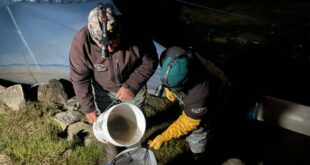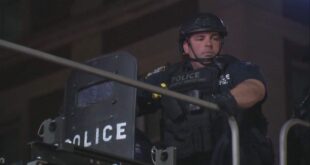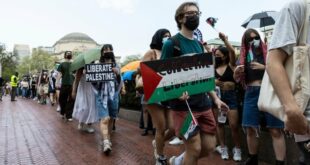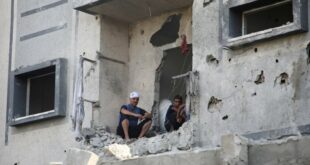Many thought to be victims in militant attack were killed and evidence wasn't collected, officials say
WARNING: This article contains graphic content and may affect those who have experienced sexual violence or know someone affected by it.
After more than two decades working with survivors of sexual violence, Orit Sulitzeanu knows the one piece of evidence investigators might want most as they look into the atrocities that took place during Hamas's invasion of Israel in October is likely to be the one they never get.
"It's the golden piece of evidence: The woman that will come forward … and say, 'Yes, it happened to me,' " said Sulitzeanu, the executive director of the Association of Rape Crisis Centers in Israel.
"No one will dare to say, 'I was a victim of rape by Hamas terrorist.' "
Israeli police and the United Nations are looking into widespread reports of brutal sexual violence during the Hamas-led invasion of Israel on Oct. 7.
Even under normal circumstances, investigating sexual violence can be difficult as victims may be reluctant to speak to authorities. This particular case is further complicated by the fact that the Oct. 7 attack set off the deadliest fighting between the groups in decades and officials believe many of the victims were ultimately killed.
Experts, including Sulitzeanu, say investigating these reports will likely take years, if not longer, and justice may look different than what people might imagine.

Witness accounts describe sexual violence by Hamas during Oct. 7 attacks on Israel
2 months ago
WARNING: This video contains graphic content. Israeli police published video footage of eyewitness accounts, with identities blurred, describing sexual violence carried out by Hamas during the Oct. 7 attacks on Israel.
Sulitzeanu says she started hearing reports about rape, disfigurement and sexual abuse of women and men in the days after Oct. 7.
The group Physicians for Human Rights Israel, which has historically advocated for the health of people in occupied Palestinian territories, published a report in November on the sexual violence based on photos, video and other publicly available online information, as well as its own interviews with eyewitnesses, soldiers and first responders.
The report documented such incidents at the Nova music festival near Israel's southern border, homes around the Gaza Strip and an Israeli military base.
"What we know for sure is that it was more than just one case and it was widespread, in that this happened in more than one location and more than a handful of times," Hadas Ziv, policy and ethics director for the organization, told The Canadian Press.
"What we don't know and what the police are investigating is whether it was ordered to be done and whether it was systematic."
UN experts call for accountability
Two experts appointed by the United Nations have demanded accountability for the violence.
Alice Jill Edwards and Morris Tidball-Binz — the agency's special rapporteurs on torture — said in a statement that any sexual violence would "constitute gross violations of international law, amounting to war crimes."
They said the attacks might "also qualify" as crimes against humanity "given the number of victims and the extensive premeditation and planning of the attacks.
"The growing body of evidence about reported sexual violence is particularly harrowing," Edwards and Tidball-Binz said in the statement.
"Each and every victim deserves to be recognized, regardless of their ethnicity, religion or sex, and our role is to be their voice."
The Israeli government presented evidence at the United Nations in December about rape and mutilation they say Hamas militants committed on Oct. 7.
Roughly 1,200 people were killed in the attack that day, according to the Israeli government. The country then declared war against Hamas, retaliating with attacks that have killed 25,295 Palestinians and injured 63,000 more as of Jan. 22, Palestinian health officials say.
An Israeli police superintendent who testified at the UN shared eyewitness accounts, including one who told police they saw girls left with broken pelvises after being repeatedly raped. A volunteer medical worker sent to collect bodies and remains told the UN she saw a woman with nails and different objects in her reproductive organs.
"Her body was brutalized in a way that we cannot identify her, from her head to her toes," Simcha Greinman, a volunteer with ZAKA, an Israeli search and rescue organization, said during a conference at UN headquarters in New York.
Hamas has denied accusations of sexual abuse.
Investigations more complex in wartime, experts say
Investigations into wartime sexual and gender-based violence are more complex than peacetime investigations for a multitude of reasons, experts say.
Sheer volume is one of the factors complicating matters. Police, pathologists, coroners and other officials who respond to crime might be called to investigate just a handful of reports of sexual violence in a year. After Oct. 7, those officials were suddenly dealing with hundreds of cases in a single day.
"Even if you are a well-equipped, developed country, it is very difficult to conduct investigations when you are dealing with sort of that scale of violence," said Iva Vukušić, an assistant professor of international history at Utrecht University in the Netherlands. She previously spent three years in Sarajevo, working as a researcher and analyst at the special department for war crimes in the prosecutor's office of Bosnia and Herzegovina.
"The system simply struggles to even keep up."
International investigations might not even start until it's safe for personnel to fly into the country, Vukušić said. Once they arrive, she says, it wouldn't be unusual to have little physical evidence given the chaos of wartime.
Volunteers collecting bodies for burial in Israel have described working as quickly as they could while being shot at. They said this left no time to collect physical evidence or photographs to prove what they believed to already be obvious based on the state of the bodies.

Israeli police have said they were not focused on studying crime scenes, requesting autopsies or collecting semen samples from women's bodies after the chaos of Oct. 7. Investigators also have said many who were believed to have been sexually assaulted were ultimately killed, and officials prioritized identifying and burying remains rather than gathering evidence for criminal prosecution.
Vukušićsuspects investigators will be looking for any patterns between cases, which could establish whether there was an order or policy behind the violence.
"This is definitely a process that takes at least two to three to 10 years," she said.
Justice will look different person to person: expert
In Israel, international law professor Cochav Elkayam-Levy is leading what's called the Civil Commission on Oct. 7 Crimes by Hamas Against Women and Children, which is documenting incidents of sexual violence.
The commission aims to develop a comprehensive understanding of gender-based violence committed by Hamas, instead of focusing on forensic documentation of individual cases.
It says it has gathered witness accounts of sexual assault against Israeli women and photographic evidence of men being sexually tortured.
Justice will look different from person to person, said Vukušić, whose research focuses on mass violence and transitional justice, especially criminal accountability.
Some people will want acknowledgement of harm done, an opportunity to tell their story in court or lengthy prison sentences for those responsible, she said. Others might want to be left alone so they can try to move forward.
Sulitzeanu, with the Association of Rape Crisis Centers in Israel, says she personally hopes an investigation will get the truth of the abuse on the record.
"It's very important for people in the world to understand that this took place," she said.
ABOUT THE AUTHOR
Senior Writer
Rhianna Schmunk is a senior writer for CBC News based in Vancouver. Over nearly a decade, she has reported on subjects including criminal justice, civil litigation, natural disasters and climate change. You can send story tips to rhianna.schmunk@cbc.ca.
*****
Credit belongs to : www.cbc.ca
 MaharlikaNews | Canada Leading Online Filipino Newspaper Portal The No. 1 most engaged information website for Filipino – Canadian in Canada. MaharlikaNews.com received almost a quarter a million visitors in 2020.
MaharlikaNews | Canada Leading Online Filipino Newspaper Portal The No. 1 most engaged information website for Filipino – Canadian in Canada. MaharlikaNews.com received almost a quarter a million visitors in 2020.







